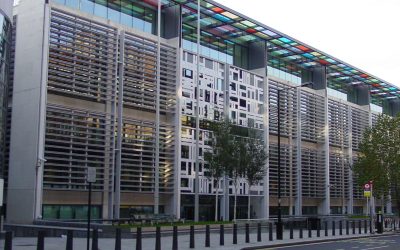Survey reveals how inflation and rising demand for services is forcing district councils to make unpalatable choices
Cherished local services – including many which support vulnerable people or take pressure off the NHS – are set to disappear or be cut as a result of district councils’ growing financial crisis.
Culture, community support, parks and green spaces and leisure are the services at greatest risk of being scaled back as councils face no option other than reduce their costs, a District Councils’ Network (DCN) survey reveals.
District councils are the tier of principal local government closest to communities and exist in nearly half of England. They are responsible for many of the most visible local services, such as housing, town centre regeneration, parks and waste collection.
However, the sector has seen Government grant and its spending power lag far behind inflation while it also faces higher costs resulting from intensifying demand for services. Member councils are, in particular, reeling from higher costs on homelessness and temporary accommodation and the cost of helping many people facing losing their homes from tipping into crisis.
DCN’s research predicts a total funding shortfall of £550m (15% of net spend) for district councils in 2023-24 and £610m (16%) in 2024-25.
We also anticipate that councils will make savings amounting to 9% of their budgets, potentially leading to workforce cuts and service reductions.
Cllr Elizabeth Dennis, DCN’s finance spokesperson, said: “District council services are the most visible to local communities and provide a vital lifeline to many of our residents. However, unless we receive a realistic financial settlement and the financial freedoms to ensure we can raise extra money to undertake our work, councils are left only with an impossible choice of which services to cut back.
“We already anticipate councils will make savings amounting to 9% of their budgets, where possible through efficiencies, but increasingly savings are only achievable through workforce cuts and service reductions.
“Any further scaling back of district council services would be disastrous. The most vulnerable people will be hit hardest – for instance those who benefit from our advice services and financial help to prevent them from becoming homeless. It would also hit the NHS which benefits from our work to keep people out of hospital and in good health through rehabilitation services at leisure centres and home adaptations for people who are at risk of suffering falls.
“Far from levelling up taking place, without additional support it is likely our places will look poorer, our people will have fewer opportunities, our environments will be less pleasant and the overall public realm will be in decline, unless we receive urgent help from the Government.
“We know public finances are tight but it is essential that our spending power rises by at least 6% next year to avoid the worst cuts. We also urge extra support for the services hit by the highest rising demand, such as providing temporary accommodation where current funding lags far, far behind our actual costs.”
DCN is calling for:
- An increase in district council spending power of at least 6%, through additional grant and freedom to raise money locally so we can support ourselves independent of the Treasury.
- In particular, districts should be able to increase their element of council tax by 4.99% or by £10 – whichever is greater – without a referendum. This would cost Band D council tax payers a mere 20p a week.
- Additional support for homelessness and leisure services, which have both seen significant cost rises.
- The implementation of the Government pledge to allow councils to increase planning fees to lessen the shortfall between them and the overall cost of providing planning services.





